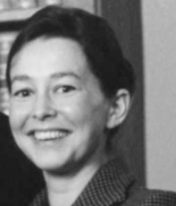Maaike van der Lugt
Winner Dissertation Prize 1999
Dissertation
The worm, the demon and the virgin. Medieval theories of extraordinary generation (c 1100 – c 1350) A study of the relationships between theology, natural philosophy and medicine
Supervisors: Prof. dr. M.B. de Jong, Prof. dr. J.C. Schmitt
Nomination: Utrecht University, Faculty of Arts
Report by the selection committee
Can a girl become pregnant through sperm in the bath water? Can certain animals be fertilized by the wind? Is spontaneous generation possible and if so, which animals can be created by this means from dead matter: only worms and insects, or larger animals as well and even human beings? Can demons beget children by women and if so, what sort of beings are the result? What is Mary’s part in the miraculous begetting of Christ? The thesis studies the scholastic discussions on these three forms of extraordinary reproduction, in all of which fertilization takes place without sexual intercourse. The three case studies provide insight into a number of wider themes, such as the interaction between theology, natural philosophy and medicine, the interfaces between scholasticism and the world of legends and stories, and the development of views concerning the miraculous. The research covers the period between 1100 and 1350. The main sources are commentaries on the Sentences of Peter Lombard, on various treatises by Aristotle relating to natural philosophy and on medical texts such as the Canon of Avicenna. The book opens up a complete field of research: it discusses a wide range of source material and in addition is primarily based on unpublished texts. The author indicates that she possesses a number of highly specialized skills and that she is able to use these skills in order to answer a number of original, interesting questions concerning the scholastic approach to the miraculous during the Middle Ages.
